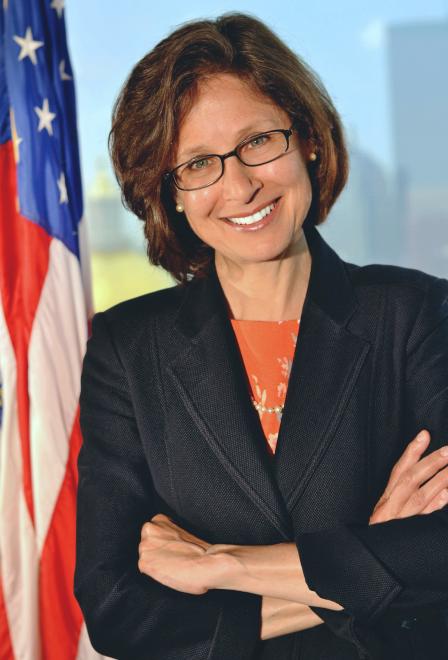Massachusetts Secretary of Elder Affairs Alice Bonner, Ph.D., R.N., G.N.P., is co-chair of an expert panel working on a report for the Institute for Healthcare Improvement (IHI) on the subject of patient safety in home care. Dr. Bonner has been involved in elder care as a clinician and educator throughout her career. She previously served as the Director of the Division of Nursing Homes for the Centers for Medicare and Medicaid Services, Director of Health Care Safety and Quality for the Massachusetts Department of Public Health, and Executive Director of the Massachusetts Senior Care Foundation. Patient Safety Beat talked with her about patient safety and care for the elderly.
Betsy Lehman Center: You’ve worked in long-term care for many years. Why did you decide to specialize in geriatric nursing?
Dr. Bonner: One of my first jobs in college was working in a nursing home. I thought the people who lived there were terrific. They had both great stories and interesting health issues. I was excited to be part of that kind of nursing.
Betsy Lehman Center: You co-chair an an expert panel for the Institute for Healthcare Improvement focused on patient safety in home care. What are some of the key learnings?
Dr. Bonner: We know we’ve paid less attention to patient safety in home care than in hospitals and long-term care. While some good work has been done, more is needed. The role of the family caregiver is critical and, unlike a hospital setting, where most care is delivered by doctors, nurses and a health care team, at home, care is primarily self-care or delivered by family members.
Betsy Lehman Center: Have any of the panel’s findings surprised you?
Dr. Bonner: The panel confirmed what we already knew, namely that care outside the hospital is delivered in an uncontrolled or largely uncontrolled environment. You are in someone’s home. You can’t go in there and say, “You need to throw that rug away! Fix that hand rail!” You have to start by asking the care recipients what’s important to them while they are at home. You need to get to know them and understand their priorities, not set the health care system against the care recipient. Rather, our approach should ask “What’s important to you as the person at the center of the care? Together let’s figure out how we can support you in achieving your goals.”
Betsy Lehman Center: How does self-determination factor into long-term and elder care?
Dr. Bonner: Self-determination is a key principle of person-centered care in all settings. We have to respect people, grant them the dignity of making their own decisions and then figure out how to support the safest possible care within what matters most to them. One of the challenges in home care is the age of the care recipients; often, they are elders and, in some cases, in frail health. Our ability to accurately determine cognitive status is limited. We don’t have many validated tools or training available for home care workers who want to learn how to assess whether or not someone has the decisional ability to exercise self-determination. If we can establish that someone has the ability for self-determination — and it’s always assumed that they do until proven otherwise — then that person’s decisions are paramount. We need to figure out how to support those decisions, even though we may not agree with all of them.
Betsy Lehman Center: How can physicians’ offices and hospitals better coordinate with home-care providers to improve safety?
Dr. Bonner: Whether by telephone or email, close communication among the primary doctor, hospital, skilled nurses, the home-care team, family members and the care recipient is really important. Beyond that, it would be ideal to have an interoperable, longitudinal personal electronic health record to follow the person across care settings, but we’re not quite there yet. That type of tool would help coordinate care, reduce medical and medication errors and better support the wishes of the person at the center of care. Data aggregation would be another advantage of such a system. Connected electronic health records would benefit both the individual and population at large.


